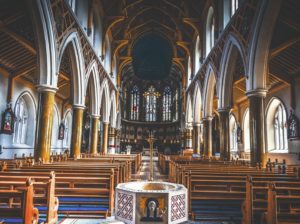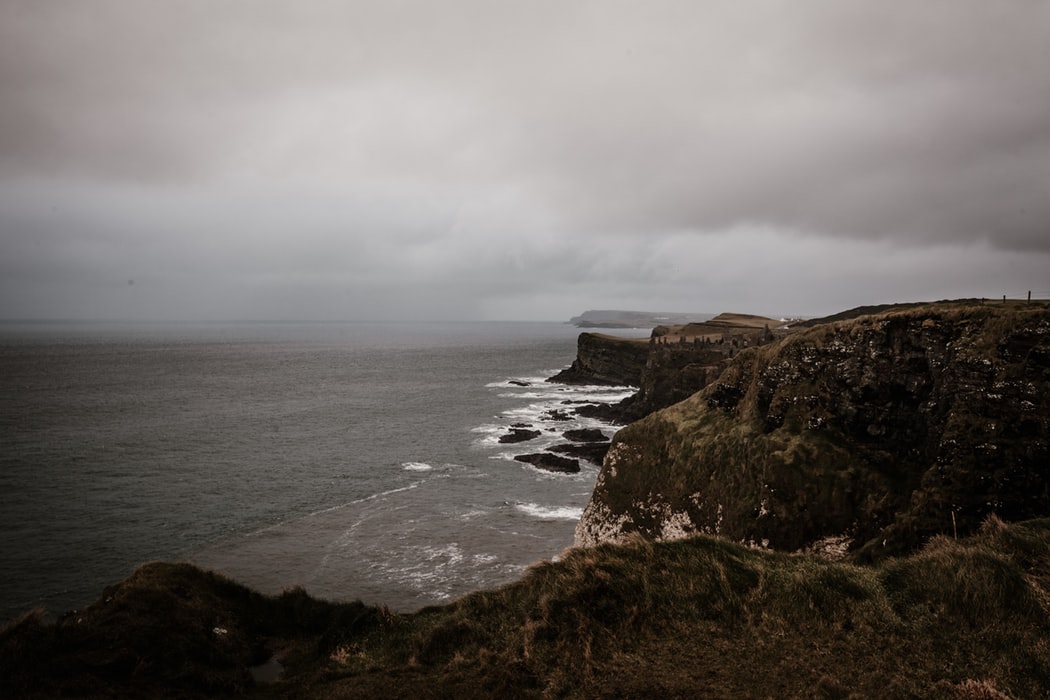It is a sad fact of life, with a huge raft of historical evidence for support, that much violence has occurred as a result of religion. Or rather, in my humble opinion, as a result of the actions of certain believers. I mean those who have chosen to interpret their religious beliefs as compelling reasons for aggression towards those who believe differently. We can go back to the Crusades, when Christianity slew Islam, to the Spanish Inquisition, when non-Christians were tested, tortured and murdered in the name of God. Many wars throughout history have been fought in the name of religion. The atrocities, so fresh in the mind, of New York, Madrid, London and more, are more recent evidence of how religion has caused violence.
And the thirty years of death in terror in Northern Ireland offer a prime example. That last piece of “evidence” is what I choose to write about – I know it, I was there, I lived the day to day build-up of religious hatred and discrimination that eventually erupted into violence. Death, bombings and destruction prevailed, as my people suffered, all because religion, politics, and nationalism intertwined and violence was the end game.
I was a Catholic child in a Belfast ghetto, and many events occurred to tell me that I was the wrong religion and therefore, socially inferior. Police, usually from the Protestant faith, would stop us playing ball games in the little cobbled streets. We were not welcome in the nearby playground, situated in the Protestant part of our district. At the age of eleven, my friend and I were beaten up by a crowd of children in that playground. We had dared to go on the swings, wearing our convent school uniforms that singled us out as Catholic. I recall asking the park-keeper to help, and this adult told me “Get out, you have no right to be here.” Imagine the hurt to a child, magnify it to extend to many children like myself, and you may begin to understand how religion can lead to violence.
The real vital issue involved
The vital issue was not so much religion, as that one religious group constantly denied human rights to another, in the name of their beliefs and because of perceived superior status.
An even more painful memory is that of being turned away from the home of some Protestant friends, at the age of six. For over 50 years, I have never been able to forget this hurt, as it stands clear as an act of cruel aggression, perpetrated in the name of religion. My friends and I were really not concerned about God, or differences; we just went to our respective churches and schools. Back in the 1950s, not everyone had a TV; they did and my family did not. So, at five o’clock, my friends would invite me to watch “Children’s Hour” on BBC TV. This was fine for a week or so, till one summer’s evening, as the three of us trooped happily to their front door, the mother appeared, pushing the girls behind her and blocking my way.
 Imagine a six-year-old, confronted by a large woman with folded arms and glaring eyes. “You can’t come in the house anymore. You’re and Catholic and we don’t want you here.” The word “Catholic” was delivered with venom, with repulsion, with finality. I leave you to imagine the feelings of confusion, degradation, and pain. That experience was neither singular nor confined to me.
Imagine a six-year-old, confronted by a large woman with folded arms and glaring eyes. “You can’t come in the house anymore. You’re and Catholic and we don’t want you here.” The word “Catholic” was delivered with venom, with repulsion, with finality. I leave you to imagine the feelings of confusion, degradation, and pain. That experience was neither singular nor confined to me.
Trying to get a job later, in Protestant-dominated Belfast, was difficult. The same attitudes applied, the same discriminatory practices made it so hard. One prospective employer told me at the interview that I was the best candidate he had seen, but because all the staff was Protestant, my life would be hell. So he wished me luck and told me that, for my own good, he could not employ me.
Religion dictated social and economic status and power in a divided community.
Because of beliefs, linked so closely to national loyalties and politics, one group was consistently disadvantaged and denied civil and human rights. It was only a matter of time for the backlash to erupt into violence.
I have used personal experience to present a case for the hypothesis that religion does indeed lead to violence. A deeper analysis is called for. It is never just religion, but the assumption that a particular set of beliefs is the right set, which leads to violent outcomes. Add the elements of discrimination, social and economic deprivation to religion, and from that combination comes the potential for violence. To watch the flames around the church door, the gunshots in the dark, the stones were thrown, the blood, all these memories can never be eradicated.
Religion is a form of organized thinking that impacts on so many areas of life. Based on personal experience, supported by historical evidence, I would have to say that this mindset is what makes it a fact: religion leads to violence. This is so sad, because for some, to have the comfort of faith, a belief in a Higher Power, is a wondrous thing. To take the wonder and distort it, in order to visit death and destruction on others, in its name, is a horror. One day, maybe, with the help of whichever gods and beliefs man espouses, religion will either cease to be or become what leads to peace and acceptance. One can only live in hope.






